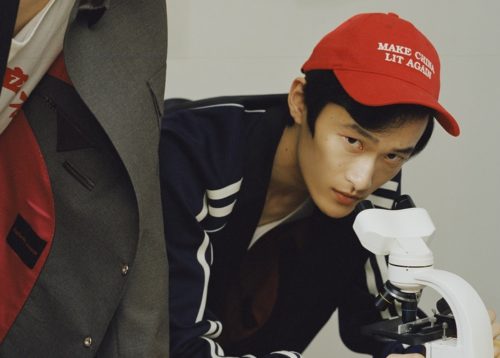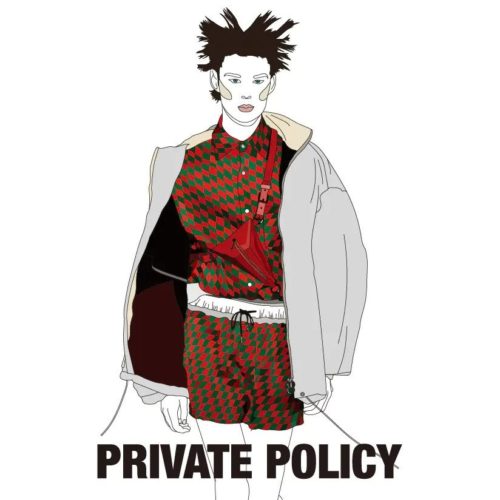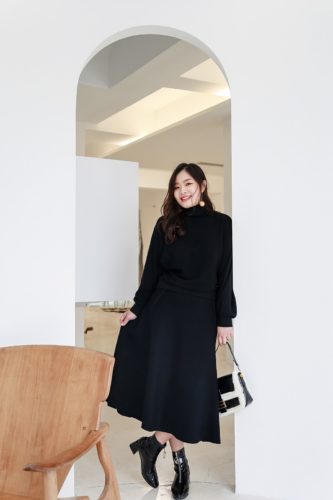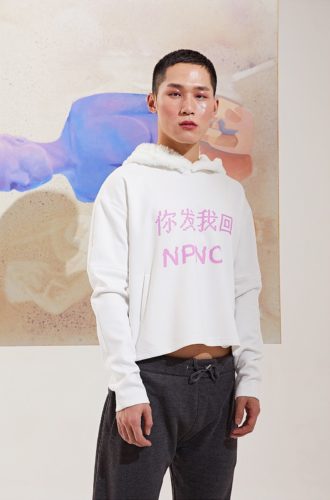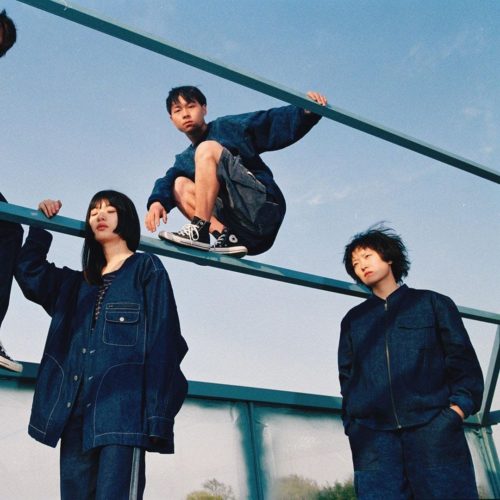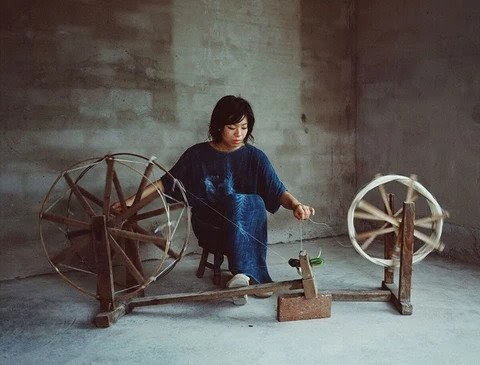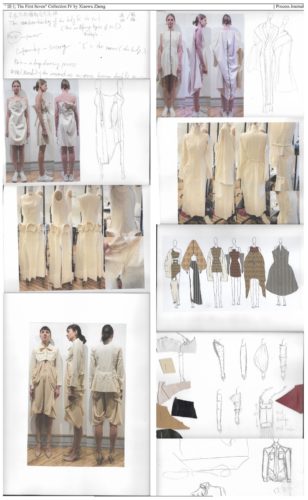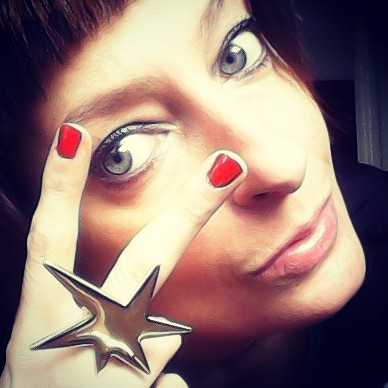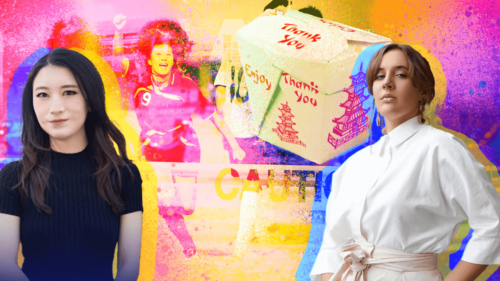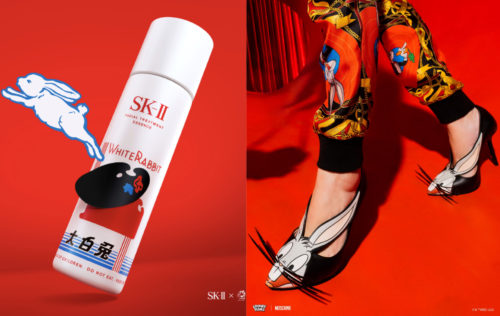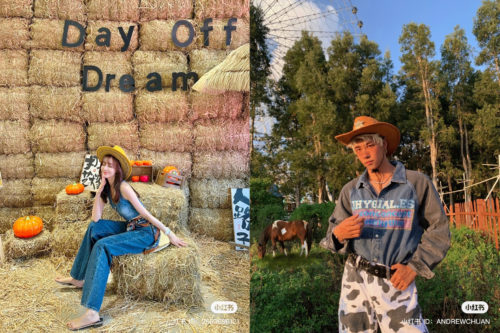China’s fashion progressives: 8 brands hitting society’s core notes
“Fashion is part of the daily air and it changes all the time, with all the events. You can even see the approaching of a revolution in clothes. You can see and feel everything in clothes.” —Diana Vreeland
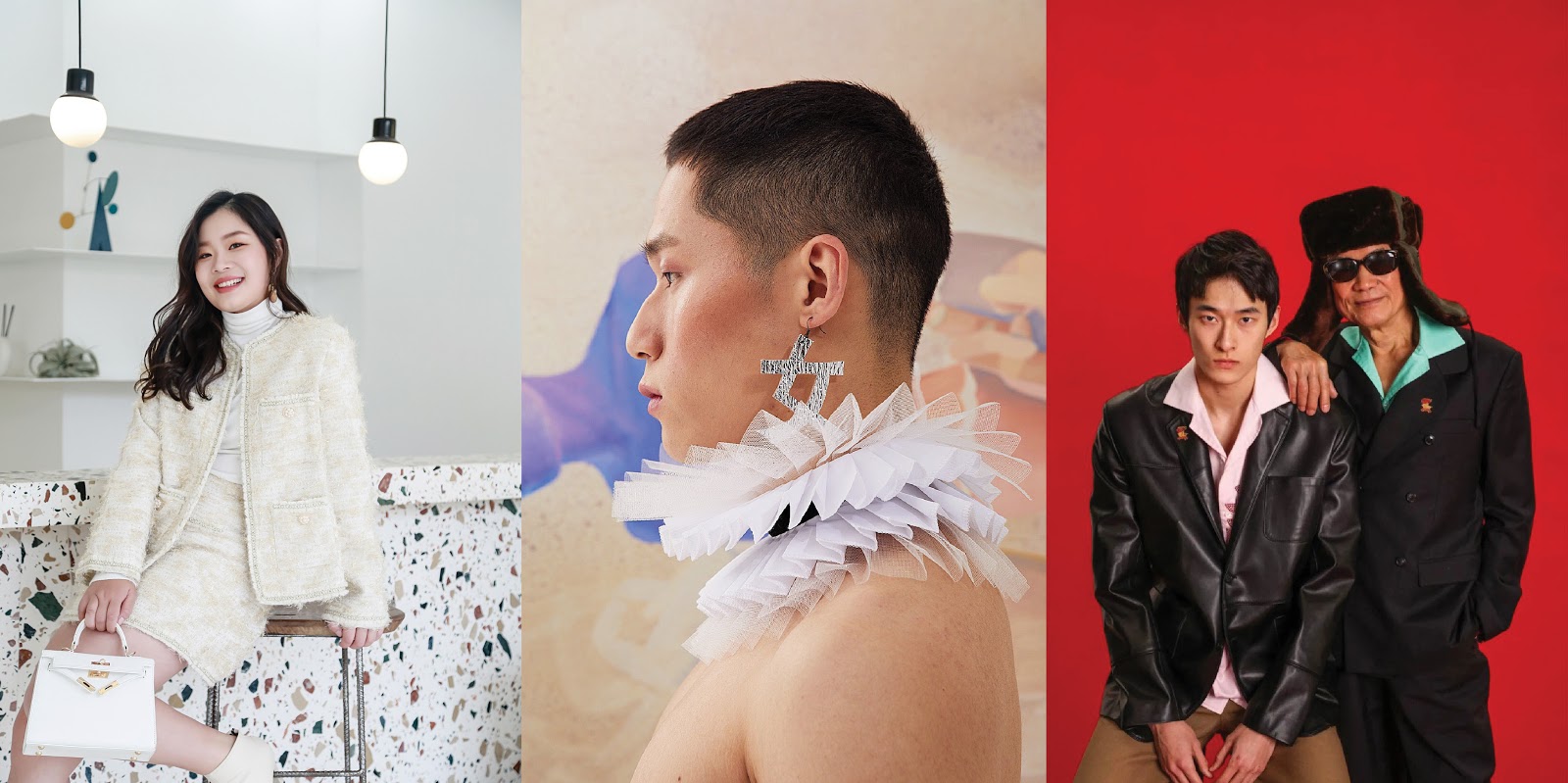
The “Made in China” label is undergoing the ultimate 21st-century makeover — with a subversive twist. This rapidly changing landscape has become a phenomenon that goes beyond fashion’s systematic biannual “must-see” collections; it waves the flag for change — many of them progressive — within Chinese society.
Accompanied by an increasingly vocal contingent of young Chinese who value individuality and the expression thereof, the fashion scene in China is exploding. This cultural “movement” has echoes of China’s New Youth of the 1910s and ’20s, and just as they did 100 years ago, these youngsters today are redefining their generation’s hopes, dreams, and expectations.
The following eight brands each take their cue from an array of core issues within Chinese society, from sexuality to sustainability, body image to racial prejudice, censorship to art.
By breaking taboos, these designers are also redefining what “Made in China” implies — and the heights it can reach.

Fabric Porn
Designer Zhào Chénxī 赵晨曦 founded the Fabric Porn brand in 2019 in Shanghai. With functionality and artistry as its two core pillars, the brand walks a fine line between art and business — though it has ambitions that go beyond commercialism.
Fabric Porn hopes to give China’s youth new reasons to embrace their heritage and take pride in it. The Fabric Porn collections tap into the traditional and grassroots, including traditional Chinese button knots sewn onto denim jackets, t-shirts boasting the image of China’s household comic Zhào Běnshān 赵本山, or even hoodies incorporating in-vogue Chinese ad slogans. Other items, like the brand’s “Make China Lit Again” cap, resonate with many of today’s urban millennials who are proud of their country. “Cultural confidence” is the name of the game.
Zhao picked his brand name to bust wide open the discussion — or should we say lack thereof — surrounding sexual education and awareness across China. It is, admittedly, also good clickbait.
Products: Menswear, unisex clothing
Instagram: @fabric_qorn

Private Policy
Established in 2015, New York-based Chinese designer team Haoran Li 李浩冉 and Siying Qu 瞿思颖 presents cutting-edge genderless clothing. High-quality fabrics meet classical shapes, pushing all the visual and tactile buttons, all in the individual pursuit of fashion freedom.
The brand has a tendency to pack every season’s presentation with one strong sociopolitico statement, whether Chinese or global. Throughout the years, they have used New York Fashion Week to spotlight the South Asian fishing industry, support LGBTQ rights, and break Asian stereotypes, just to name a few.
Their “COMM-UNITY” collection was inspired by the 1969 Stonewall Riots, which in part was sparked by Marsha Johnson’s “queerness” and skin color.
Products: Unisex clothing
Instagram: @privatepolicyny

Atelier Rouge Pékin
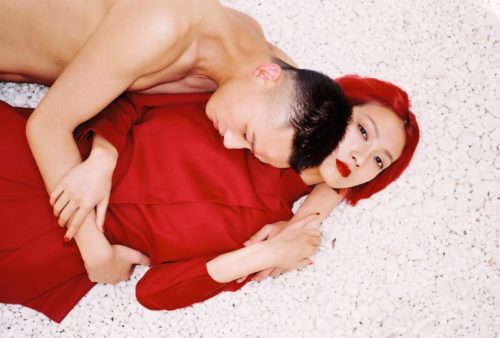
The power, passion, and energy of Atelier Rouge Pékin (ARP) conveys the message of a new and modern China, incorporating all the paradoxes that come with this vast territory.
ARP is a fashion brand launched in Beijing in 2013, inspired by China’s modern-day creativity and traditional craftsmanship. The ARP team constantly pushes the boundaries of its design inspirations, and has earned a reputation as one of China’s most innovative brands. ARP blends the subtlety of traditional Chinese design with the energy of contemporary culture,
Of particular interest to many society- or fashion-watchers is the phenomenon of Chinese designers who, after some 20 years of foreign fashion “invasion,” are going back to traditional Chinese cuts and materials, reinvented to suit their needs and styles in 2020. And that’s precisely what ARP stands for. Its very own sense of unadulterated post-80s pride — hold the prejudice.
“Fashion, in China, is nowadays seen as a way to go back in time and rediscover your roots,” brand founder PJ says. “It can create a new culture and identity with the help of its many influences. Fashion is an art that allows people to express themselves freely, in every way, everywhere.”
The brand’s products range from minimally cut Mao jackets to more traditional and colorful Chinese folk patterns.
Products: Mens- and womenswear, accessories
Instagram: @atelierrougepekin_official

AB ALEI
Founded in mid-2019 by Gù Lěilěi 顾蕾蕾, a.k.a., Teresa, the plus-size womenswear brand AB ALEI wants to create a new message of curvy acceptance and throw haters a fashion curveball.
Gu, a Hong Kong Polytech University graduate, is taking her vision into unknown territory. The AB ALEI slogan reads, “Extra Large is Extra Beauty!” It’s about re-shaping and re-writing the bodily narrative, transforming a “weakness” into strength. It’s about acceptance. Self-acceptance.
Herself having had to turn to the plus-size U.S. and Hong Kong market for some decent gear, Gu offers the curvier fashionista in China a choice she herself never had.
Unlike the rather touch-and-go quality displayed and delivered across Taobao, AB ALEI has taken a leaf out of the more European palate, and presents a range of clothes that lean toward softer, feminine senses. Tinges of pastel accompanied by tasty bites of light though sultry materials (wools, cashmere, and Chanel-like tweed) take China’s plus-size fashionista into new, tempting territory.
Gu has only just begun. She organizes parties and beauty talks, and has plans to expand her physical store in Hangzhou as well as her online stores on Taobao.
Products: XL womenswear for fashionistas over 25
Instagram: @abalei7

LYAN
Bringing you China’s LGBTQ culture through fashion. Keywords at hand: Non-labeled, Deconstructivist, Androgynous | Genderf*ck, Club Kids, queer culture, contemporary art, and Chinese elements.
Designer Lǐ Yìyáng 李益阳 is an outspoken LGBT activist and fitness fanatic. He was born in a small city somewhere in central China, and from an early age was highly influenced by his father’s teachings in traditional Chinese painting and calligraphy. Teenage Li went on to attend the Affiliated Art High School of China Academy of Art (CAA) and graduated with a degree in contemporary art. Currently residing in New York, Li runs his own brand, where deconstructivism meets positively constructive art: LYAN.
Li’s silhouettes present a mosaical imagery starting with the roots of central Chinese grasslands, then evolving into an adult urban setting in which sexuality by choice and a society of non-exclusivity are key.
“I’m breaking the boundaries between male and female, blurring the borders using Chinese elements — my roots — in a global and modern art/design environment, and touching upon the linings of contemporary fashion,” Li says. “After all…what defines ‘manly,’ what constitutes ‘girly’? It’s a free life. celebrate it.”
Products: Menswear, accessories
Instagram: @official_lyan

Rio Hilo
Rio Hilo, a name which literally translates as “river of threads,” is a designer brand based inside a 100-year-old stone house at the foot of the Cangshan Mountain range, some 8 kilometers from downtown Dali, Yunnan province.
Designer Liu Siyang 刘思阳 founded Rio Hilo back in 2017, in Xiayin Village, a very small, rural village which consists of just 20 family units. As many people already know, China’s migrant city workers generally only get to visit their children back home once a year, during Chinese New Year, and spend the remaining 11 months in the big city, making the bigger bucks for the sake of their children’s futures.
“I have worked with other, larger manufacturers before, but in my quest for reliability and good quality, I opted for their smaller, more ‘artisanally producing,’ so to speak, counterparts,” Liu says. “And then there’s the ethical factor: I have visited these craftsmen, even lived with them. They’re a husband and wife who hired a handful of people, all of whom had returned to their native countryside towns after working stints in the big cities, such as Shanghai.”
Returning to their hometowns and finding employment in this particular workshop has made the lives of these highly skilled artisans happier. And healthier.
Rio Hilo’s ultimate goal is to establish a 100 percent recyclable, sustainable, and compostable brand. Mixing fashion and Earth, hearing and vision. Rolled into one fluid sensation.
Products: Sustainable mens- and womenswear
Instagram: @riohilo_

Angel Chang
One truly urbane New Yorker, Chang had little to do with traditional Chinese craft until she discovered that the hand-woven fabrics of the Chinese Miao and Dong minorities were on the verge of disappearing, and hurried to preserve the craft through her collections.
Arriving in China’s Guizhou province in 2009, Chang began to work closely with the weavers and embroiderers of several local mountain villages, producing entirely hand-woven and hand-embroidered traditional fabrics. The entire process, from cotton planting to fabric dyeing, used no electricity and no artificial elements — the fabric was dyed using native wild plants.
Chang learned to live among the local communities following the cycles of nature and going entirely off-the-grid, producing an almost zero-carbon-footprint collection. A triumph for traditional craft preservation efforts, Chang successfully collaborates with local craftsmen on producing the one-of-a-kind fabrics that normally don’t make it out of a family household.
Traditionally, such textiles and embroidery are used to preserve some of the history of the minorities who never used a written language to document their story. Each piece takes up to two years to complete and is worn for an average of 20 years before being handed down to children and grandchildren as heirlooms.
Products: Sustainable womenswear
Instagram: @angel___chang

Xiaowu Zheng
Within New York art circles, the name Zhèng Xiǎowǔ 郑晓武 evokes images of raw, raunchy, yet ruminative contradiction.
Taking inspiration from Chinese mythology, classic Hong Kong horror movies, and historical events such as the 1989 Tiananmen protest, Zheng uses his latest collection, First Seven (头七 tóu qī), to speak out on the importance of freedom of speech and the freedom of creating art.
“This is a collection that I want to dedicate to all those brave students who fought for their freedom of speech during the Tiananmen protest in 1989, and so many other brilliant people who fight for freedom all over the world,” Zheng tells us.
“As someone who is Chinese, it is important for me to use this collection to talk about the persisting reign of censorship in China and how we as the new generation can really create a better social environment.”
Zheng consistently focuses on exploring the more brow-furrowing topics of his childhood and teenage years, as well as challenging the concept of morality, with elements of violence, mystery, horror, and sex.
While mental health issues still carry social stigma in the larger part of China, Zheng does not shy away from illustrating the floating thoughts and dark emotions from his own bouts of depression. Fashion is his outlet.
Products: Unisex clothing, visual arts
Instagram: @xiaowu_zheng_ishere

